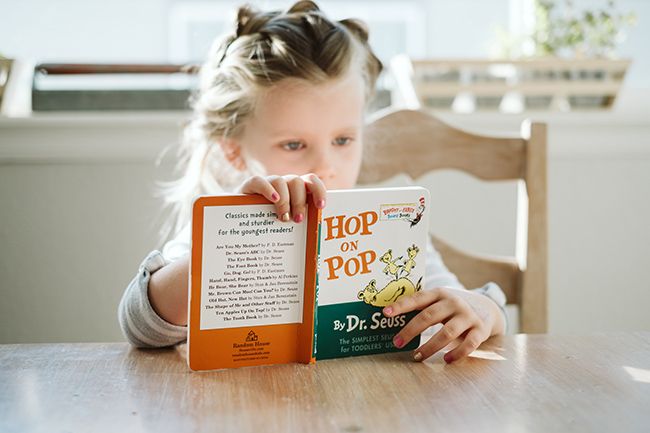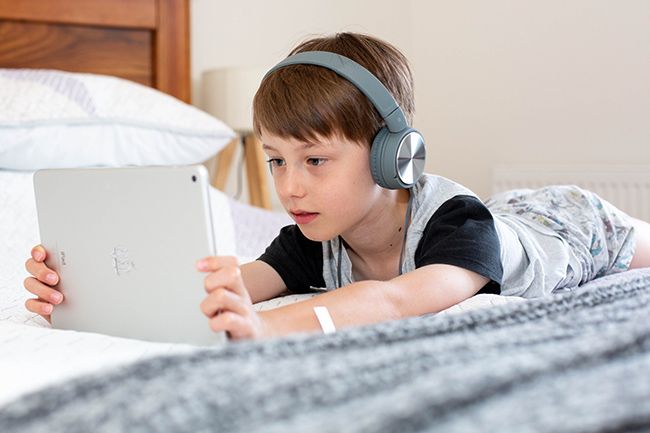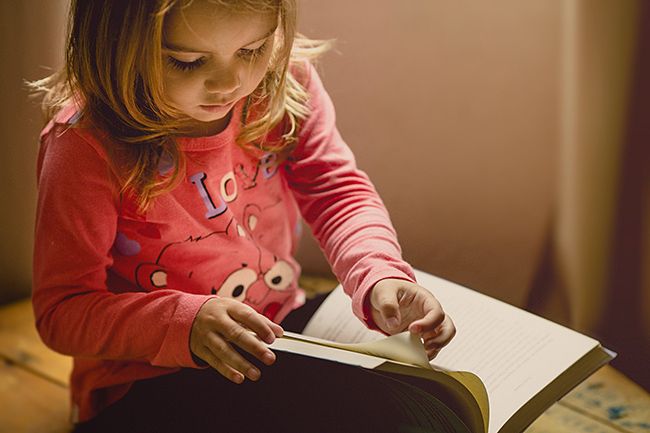Do you struggle to get your child or children into reading? Is it a big occasion when they finally pick up a book? Parents, we understand.
MORE: Back-to-school nerves: 8 activities to keep worries at bay
SEE: Alesha Dixon talks balancing ambition with passionate parenting
The summer holidays are a time for your kids to let loose after a long year at school, and while they are likely more interested in playing with friends and watching screens, keeping up their reading during the long break is important. It's also a lovely way for parents and children to bond.
As part of HELLO!'s Back to School Digital Issue guest-edited by Alesha Dixon, we spoke to former primary school teacher Emma Shingleton of Education Resource Experts PlanBee for some advice on instilling a love of reading in children.
READ: Alesha Dixon shares her top children's books
Emma tells us: "I advise reading from the very beginning with your child, from the moment they start a bedtime routine and make it a good habit that you read a story with them every night."
Read her top tips below…
It is important for children to keep up reading over the summer break
Different ways to read and listen to stories
"Reading doesn't always have to be you reading to your child," reveals Emma.
"If you've got an older child, obviously them reading to you is a good way to engage them in reading, but there are also so many amazing reading tools out there you can use.
"Toniebox is a storytelling box that you put next to their bed and they come with little characters. The child has ownership over it so they can choose what they like, pop the character on the box and it starts telling the story. So it doesn't always have to be the traditional way of reading.
"As teachers, we recommend they read for about 10 minutes a day – this could be listening to a story, putting on an audiobook, or reading along and listening to the story at the same time.
"We have to come away from the assumption that we have to read with our child for them to be learning because independent learning is just as important."
MORE: 12 best pencil cases for kids going back to school – we guarantee they'll love them
Create a reading den
"Another tip I'd recommend is to create a reading corner or den for your child.
"My little one has a little nook in the corner of his room where there's a couple of pillows, some shelves from Ikea, and picture books displayed on the shelves in his bedroom, so he can choose which books he'd like to read. It's a nice comfy place where he can go and chill out and read.
"It's similar to what we'd have in a classroom at school, a reading corner. It doesn't have to cost much. Most parents have tons of books. You can go to charity shops and buy books for 50p. Then just get a couple of cushions and some shelves.
"Displaying the cover of a book is important because just seeing the spine of a book doesn't always grab a child's attention. You could even display them on top of a chest of drawers.
"Often children do feel like reading is work and think, 'Do I have to go and read?' But if it's made exciting for them, that helps."
Children are likely more interested in watching screens
Mix up their reading material
"Your child doesn't have to read a classic book to get into reading – they could read a newspaper for children, magazines that they like and even reading online.
"These kids are more technically minded than us parents – they love tablets and going online – and it's ok to have screentime but for that screentime to be reading something like a blog."
MORE: Best school uniform deals: Where to buy reasonably-priced school uniform for kids
Get the family involved
Emma explains: "There is so much you can do as a family where it doesn't have to be obvious that they are reading.
"For example, if you're in the car, children in Year 4 and up could read out directions if you print them off. It might not feel like they are reading but they are, and it's productive. They'll feel like they are taking ownership over something.
"If you're doing gardening, get them to read the labels on the plants, like 'Where should this be planted?' It doesn't have to be a 'sitting down reading a book' situation – there are so many opportunities to read in daily life.
"Another nice idea is to get family members to read their favourite story, recording it and then giving it to the child to listen to. It makes them feel special."
Take a trip to the bookshop
"If your child isn't keen to read independently, I advise giving them ownership perhaps by taking them to the bookshop. Buying books and your children seeing you read is just as important as them reading on their own.
"If you have a quiet time at the end of the day or at the weekend, everyone can sit down with a book of their choice. Seeing that modeled behaviour is important but your child choosing what to read is as well."
Create a reading corner at home
Our language around reading is important
"It's important that we look at how we use our language around reading with our children.
"We wouldn't say in front of our child, 'Oh I'm rubbish at maths' because then they'll think, 'Well if they're rubbish at maths then I'll be rubbish at it'. So it's being wary of what we say.
"You could say, 'Oh I really fancy just sitting outside and reading a book now.'"
Keeping up reading over the summer
"You can set expectations with older children over the summer and explain to them why it's important to keep their reading up in the holidays. Say: 'Your reading has come on so well this year and we don't want you to have a summer off then go back in September and feel less confident than before'.
"You could agree with them that for example, they will read by themselves once a week, read to someone once a week and listen to a story once a week – so trying to make it enjoyable.
"For younger children, it's trying to encourage reading without them realising they are doing it, like sitting down with them and reading them a story. They will learn so much from reading with you, just sitting on the sofa, nothing too pressurised."
Other fun activities to try:
- Put your child’s favourite programmes on without sound but with subtitles. Can they read along and understand what is happening?
- Host karaoke sessions where children are challenged to read and sing lyrics on the screen.
- Why not learn a topical poem alongside your child: find one about holidays, the weather, or beaches to fit the season!
- Host a 'book café' play day at home: put a range of books and reading materials on a table and encourage children to sample them and then discuss with one another.











